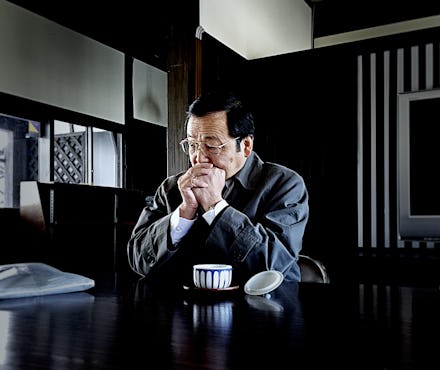Life lessons from Tadahisa Sakai, the last descendant of a Japanese samurai clan

About 150 years ago, at the end of Japan’s Edo period, a civil war resulted in the end of the samurai culture and the birth of modern Japan. One rebel clan of samurai chose mass suicide. But in the remote, mountainous Shonai region, the Sakai clan of samurai opted for a dignified surrender. They gave up their swords and destroyed their castle, created a regional bank and a silk farming industry, and threw their support behind the new Meiji government.
Sixteen generations have passed since the first feudal Sakai clan leader presided over Shonai, but his legacy lives on. Today, 71-year-old Tadahisa Sakai — whom locals refer to as “the last descendant” — is a revered man in the Shonai region, which is a two-hour flight or four-hour train ride from Tokyo.
Sakai is the curator of the Chido Museum in Yamagata prefecture, founded in 1950 by one of his ancestors. Designed to preserve samurai culture, the museum houses a collection of invaluable samurai helmets, swords, jackets that were worn into battle, fishing poles (the longest measures 30 feet) and drums used during battles to signal warriors.
In December, as Shonai was blanketed in knee-deep snow, I spoke to the impeccably groomed Sakai through a translator at the museum about how the teachings of his samurai ancestors apply to issues we face today.
He began with conflict, which may arise at work, while traveling, at home and in relationships. Many people try to avoid it at all costs, Sakai said. “Never walk or run away from difficult situations,” he added. “Face the situation from the bottom of your heart, which means honestly and sincerely.”
Once you decide to deal directly with conflict, Sakai said, try to be neither optimistic nor pessimistic, and don’t dwell on the outcome. “Do your best to deal with the problem,” he explained, “but the results are beyond your control. Que será, será … what will be will be.”
When asked how he faces conflict in his intimate relationships, Sakai — who, according to his translator, is almost never asked personal questions — was refreshingly forthcoming. “I understand that Western males want to escape confrontation and conflict, but if I am angry or upset, I debate or argue with my wife,” he said. “In most cases, I try to settle everything then and there. Even if it takes many hours, I try not to carry it over.”
He paused for a moment, laughed, and added, “Maybe my wife is always correct.”
Sakai said he used the same principles when he had conflicts with his young children. If he needed to scold his children, he did. He also praised them when it was called for, he said.
In addition to the Shonai museum, Sakai is opening a sword museum in Tokyo in January. It is the first exhibition of modern art swords that were created using ancient techniques. “Art swords are used for rituals or in religious facilities,” he said. “The surface of the sword is like human skin. It is not just metal. It is a living being.”
When asked if he feels successful, Sakai took a moment to reflect. “What I do is a tiny achievement compared to my ancestors,” he said. “I can’t even call myself traditional because I am not up to the accomplishments of those who came before me.”
“What I do is a tiny achievement compared to my ancestors.” — Tadahisa Sakai
He didn’t hesitate in addressing increasing Japanese militarism and whether it concerns him. Sakai said he doesn’t worry because he trusts the younger generation. He said they are trying to adjust to the world today so they can fit in and maneuver in their own way. “They will inherit the traditions that came before them — the essence of the traditions,” Sakai said. “It is essential that we trust them.”
Sakai spoke with pride about his own son, who is a 17th-generation Sakai: “He is already at the mastery level of kendo. That level is quite high, a bit less than black belt.”
Sakai paused for a moment before adding: “I send my best wishes and regards to the younger generation.” He said they will know what is important from their ancestors and apply it to their own lives. He smiled and said, “The future of the world depends on them.”